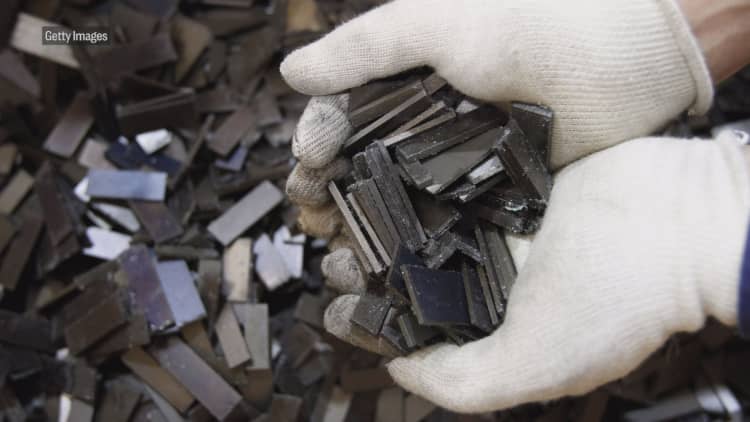
Researchers have found hundreds of years' worth of critical rare-earth metals beneath Japanese waters — enough to supply to the world on a "semi-infinite basis," according to a study published on Tuesday.
The materials sit in a roughly 965-square-mile Pacific Ocean seabed near Minamitorishima Island, which is located 1,150 miles southeast of Tokyo, according to the study published in Nature Publishing Group's Scientific Reports.
Rare-earth metals are crucial in the making of high-tech products such as electric vehicles, mobile phones and batteries, and the world has relied on China for almost all of its rare-earth material.
The seabed contains more than 16 million tons of rare-earth oxides, according to the study. That's equivalent to 780 years' worth of yttrium supply, 620 years of europium, 420 years of terbium and 730 years of dysprosium, it added.
The discovery "has the potential to supply these metals on a semi-infinite basis to the world," the study said.
Japan started looking after China cut off supplies
The discovery of the deposits could pit Japan against China to become the world's largest producer of the materials, The Wall Street Journal reported Wednesday.
Japan started seeking its own rare-earth metals after China held back shipments in 2010 during a dispute over islands both countries claim, Reuters reported in 2014. As a major electronics manufacturer, Japan needs rare earths for components.
Separately, China held back exports of certain types of rare earths starting 2010, which caused prices to jump by as much as 10 times — further pushing Japan to seek other sources, according to the Journal.
Extracting those metals from the seabed, however, is an expensive affair, the Journal reported. A consortium of Japanese government-backed entities, companies and researchers plans to conduct a feasibility test within the next five years, according to the Journal.
WATCH: If you're looking to make billions, try mining an asteroid



